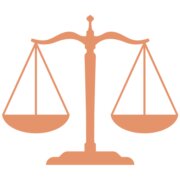Best Real Estate Lawyers in Richmond Hill
Share your needs with us, get contacted by law firms.
Free. Takes 2 min.
Free Guide to Hiring a Real Estate Lawyer
List of the best lawyers in Richmond Hill, Canada
Canada Real Estate Legal Articles
Browse our 1 legal article about Real Estate in Canada written by expert lawyers.
- Buying Property Abroad as a Canadian: A Legal Checklist
- Real estate law in Canada is mostly provincial, so rules on land registration, landlord-tenant rights, condos/strata, and land transfer tax differ by province and territory. For a typical home purchase, budget roughly 2% to 5% of the purchase price for closing costs in addition to your down payment, including land... Read more →
About Real Estate Law in Richmond Hill, Canada
Richmond Hill, a vibrant town in the Greater Toronto Area (GTA) of Ontario, has a dynamic and competitive real estate market. Real estate law in Richmond Hill encompasses the legal rules and processes that govern the purchase, sale, leasing, and use of residential and commercial properties. Canadian and Ontario-specific legislation impact all real estate activities, and unique local regulations apply to properties within Richmond Hill’s jurisdiction. Whether you are buying your first home, investing in commercial real estate, or entering into a lease agreement, understanding the fundamentals of real estate law is essential to protect your interests, ensure smooth transactions, and avoid costly mistakes.
Why You May Need a Lawyer
Hiring a real estate lawyer in Richmond Hill is not only a recommended practice but often a legal necessity for many property-related transactions. Some typical situations where you may require legal support include:
- Buying or selling residential or commercial property
- Drafting, reviewing, or negotiating purchase and sale agreements
- Dealing with mortgages, refinancing, or discharges
- Handling property disputes such as boundary or title issues
- Managing landlord-tenant disputes, evictions, or lease agreements
- Dealing with zoning and land use problems
- Transfers of property due to separation, divorce, or inheritance
- Resolving issues with property taxes or liens
A real estate lawyer helps protect your legal rights, ensures compliance with local laws, and can save you time and money by preventing future legal complications.
Local Laws Overview
Real estate in Richmond Hill is governed by provincial laws set by Ontario and, to some extent, local municipal by-laws. Here are some essential aspects of local real estate law:
- Ontario Land Registration System: All property transactions are recorded, establishing clear ownership (title) through the electronic land registry.
- Agreement of Purchase and Sale Standardization: Ontario uses standardized forms for most residential transactions, but these can-and often should-be customized with legal help.
- Land Transfer Tax: Both provincial and Toronto-specific land transfer taxes may apply, but only the provincial portion is relevant in Richmond Hill. First-time buyers may qualify for rebates.
- Condominium and Co-ownership Rules: Special laws govern condos and co-ops, requiring unique disclosure and procedural steps.
- Zoning and Building Permits: Richmond Hill’s municipal by-laws regulate property uses, permitted structures, renovations, and more. Permits are required for many alterations.
- Disclosure Requirements: Sellers must disclose certain material facts and known defects affecting the property.
- Landlord and Tenant Law: The Ontario Residential Tenancies Act governs most rental relationships, outlining the rights and obligations of both parties.
- Title Insurance: While not mandatory, title insurance is widely recommended to protect against unexpected title issues.
Frequently Asked Questions
What documents are needed to buy or sell property in Richmond Hill?
You will need identification, a signed Agreement of Purchase and Sale, mortgage documents (if any), proof of insurance, and other forms supplied by your lawyer. Sellers must supply tax, utilities, and ownership documents.
Is it mandatory to use a lawyer for a real estate transaction in Ontario?
Yes, Ontario law requires a lawyer to register land title transfers. While real estate agents can assist with negotiations, only a lawyer can complete the legal transfer and registration.
What is title insurance, and do I need it?
Title insurance protects property owners and mortgage lenders against certain losses related to the property’s title or ownership. While not required, it is highly recommended for most buyers.
How are property taxes assessed in Richmond Hill?
The Municipal Property Assessment Corporation (MPAC) assesses property values. Local property tax rates are then applied by the municipality based on this valuation.
What protections are there for tenants in Richmond Hill?
Tenants are protected by the Ontario Residential Tenancies Act, which governs rent increases, eviction procedures, maintenance standards, and security deposit rules.
What is the process for buying a condominium?
Buying a condo includes reviewing the status certificate, examining the condo corporation’s finances and rules, and addressing unique legal and financial considerations. A lawyer’s review is crucial.
What are the risks of buying property without a lawyer?
Potential risks include title defects, fraudulent transactions, zoning violations, legal disputes, and incomplete or improperly executed agreements. These can result in financial loss or legal liability.
How do I resolve a boundary dispute with a neighbour?
Start with reviewing your land survey and title documents. If a dispute persists, a real estate lawyer can provide guidance and may help mediate or litigate the issue.
What should I know about mortgage financing in Richmond Hill?
A lawyer will review your mortgage agreement for hidden fees or problematic terms, ensure proper registration, and coordinate the funding and discharge of mortgages during a transaction.
Can foreign buyers purchase real estate in Richmond Hill?
Yes, but foreign buyers may face additional taxes (such as the Non-Resident Speculation Tax) and should seek legal advice to navigate restrictions and tax implications.
Additional Resources
If you are seeking more information or assistance, consider the following organizations:
- Ontario Real Estate Association (OREA)
- Law Society of Ontario (Lawyer Referral Service)
- City of Richmond Hill - Planning & Regulatory Services
- Municipal Property Assessment Corporation (MPAC)
- Ontario Ministry of Municipal Affairs and Housing
- Landlord and Tenant Board
- Ontario’s e-Laws website for up-to-date statutes and regulations
Next Steps
If you need legal advice or assistance in real estate matters in Richmond Hill, consider taking the following steps:
- Identify your specific legal need (e.g., purchase, sale, dispute, lease).
- Gather relevant documents (agreements, ID, property details, etc.).
- Research and contact a real estate lawyer in Richmond Hill. Many offer free initial consultations.
- Ask about their experience with situations similar to yours.
- Discuss fees and payment structures before proceeding.
- Follow your lawyer’s guidance closely throughout your transaction or dispute.
- Utilize recommended resources for additional information or support.
Taking these steps will help ensure your interests are protected and your real estate transaction is completed efficiently and lawfully.
Lawzana helps you find the best lawyers and law firms in Richmond Hill through a curated and pre-screened list of qualified legal professionals. Our platform offers rankings and detailed profiles of attorneys and law firms, allowing you to compare based on practice areas, including Real Estate, experience, and client feedback.
Each profile includes a description of the firm's areas of practice, client reviews, team members and partners, year of establishment, spoken languages, office locations, contact information, social media presence, and any published articles or resources. Most firms on our platform speak English and are experienced in both local and international legal matters.
Get a quote from top-rated law firms in Richmond Hill, Canada — quickly, securely, and without unnecessary hassle.
Disclaimer:
The information provided on this page is for general informational purposes only and does not constitute legal advice. While we strive to ensure the accuracy and relevance of the content, legal information may change over time, and interpretations of the law can vary. You should always consult with a qualified legal professional for advice specific to your situation.
We disclaim all liability for actions taken or not taken based on the content of this page. If you believe any information is incorrect or outdated, please contact us, and we will review and update it where appropriate.
Browse real estate law firms by service in Richmond Hill, Canada
Richmond Hill, Canada Attorneys in related practice areas.













